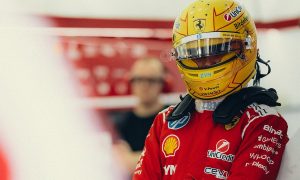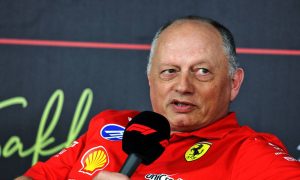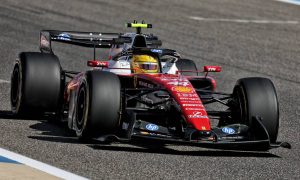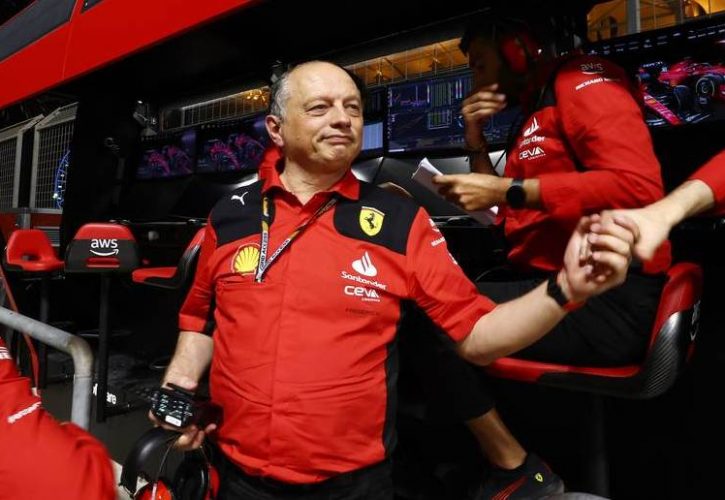
Ferrari team boss Frederic Vasseur says the engine failure that sidelined Charles Leclerc from the Bahrain Grand Prix was completely unexpected, and a full investigation into the cause of the issue is underway.
Leclerc was running third in Sunday's race when the Monegasque's engine suddenly shut down, without a single warning popping up on the Ferrari's dashboard or in the telemetry data fed back to the Scuderia's engineers.
The brutal breakdown came as a surprise given the reliability improvements achieved by Ferrari since last year.
However, the team had opted to replace the energy store and control electronics on Leclerc's unit ahead of Sunday's race as a precautionary measure after some suspicious data had been identified by Ferrari.
"Honestly we don’t know yet what’s happened exactly," commented Vasseur after the race.
"There’s been an issue this morning, we changed the parts, we don’t know where it’s coming from and we’ll have the investigation soon. But it’s too early stage for me to give you a better answer."
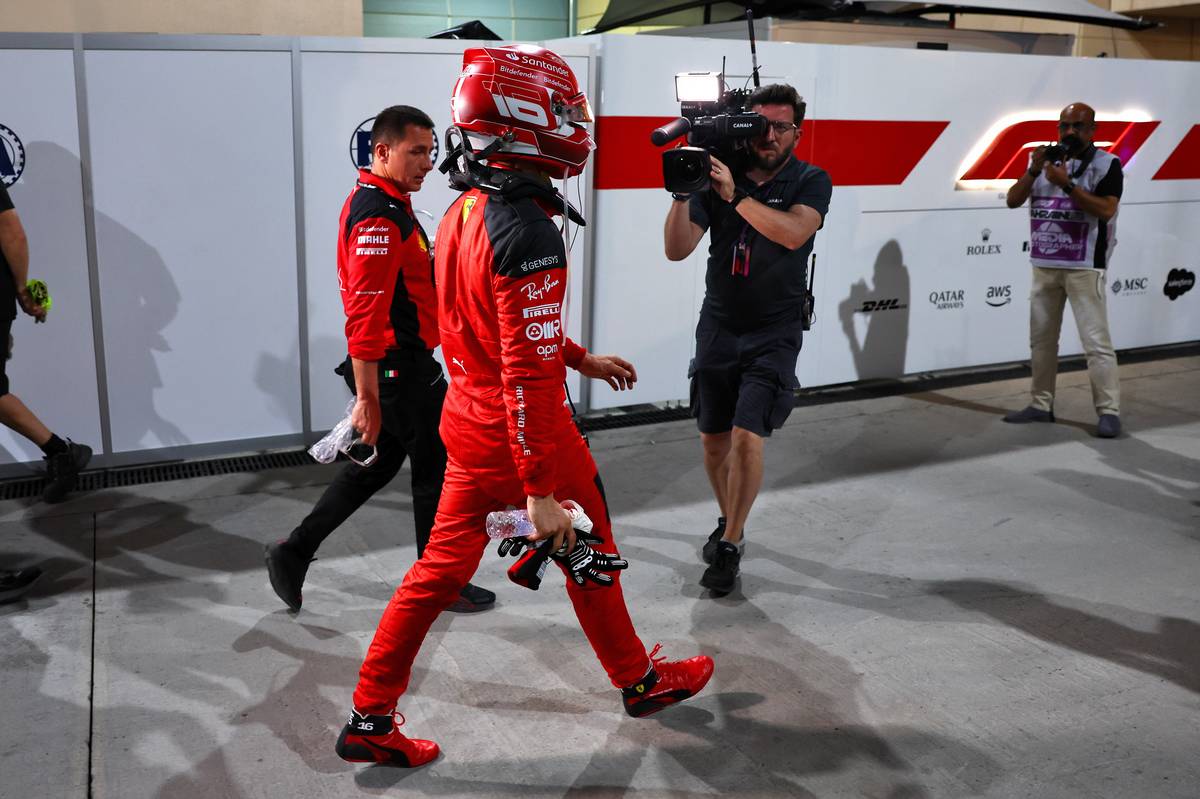
Vasseur underlined how Ferrari's engines had performed flawlessly during pre-season testing, not only for the Scuderia's benefit but also for customer teams Alfa Romeo and Haas.
"We never expected to have something like this because it’s the first time that we had it," added the Frenchman.
"We didn’t face the same issue at all during the six or seven thousand kilometres that we did with the engines last week with the three teams. And we never had the same issue on the dyno throughout the winter.
"But again, we need to do a full investigation before to be able to give you a proper answer."
Adding to Ferrari's engine woes was the relative performance of the Italian outfit's SF-23 in Sunday's event and its significant deficit in race trim to Red Bull's winning RB19.
"Overall, I would say that the picture is not the one expected before the race," conceded Vasseur.
"If I want to summarise the situation I would say that from the quali pace we are there, we are matching Red Bull, at least in Bahrain, and it was a positive point.
“But now we have to be realistic. If we want to improve, we need to have a clear picture of the situation and the reliability is not at the level that we need.
"If we want to win races, we need to have a clean sheet on the weekend and not small details here and there."
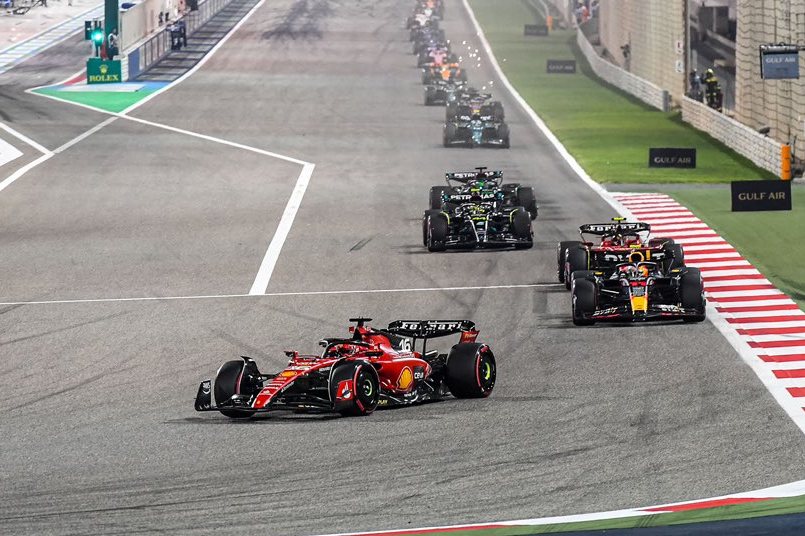
Whereas most teams chose to run a first stint on the soft tyre before switching to the hard compound, Red Bull opted – against all odds – to stick with the softs for its middle stint, a luxury it could afford due to the RB19's lower tyre degradation relative to its rivals.
"[On] degradation, I think Charles would have been able to finish P3," noted Vasseur. "But the degradation is probably at the level of the Mercedes and not far away of matching with Alonso but not at the level [of Red Bull].
"They were able to do the second stint with soft when we had to put the hard to go to the end.
"It means that the pace difference at this stage came also from the tyre choice. We were not able to do soft-soft-hard."
Vasseur said his team would do "a proper analysis of the situation to know what is going well and what is going wrong and to try to get the best on the issues".
"But now that we have a better picture of the situation and we know exactly what we need this weekend we have to clearly make a step forward," he concluded.
Keep up to date with all the F1 news via Facebook and Twitter




